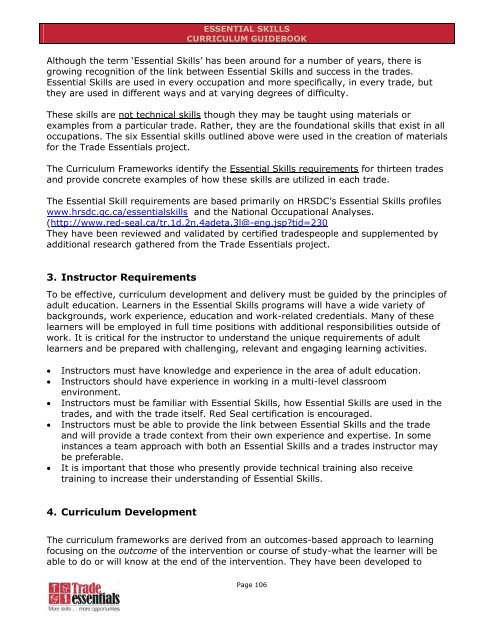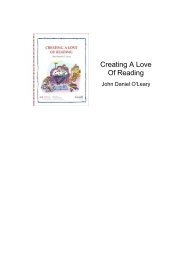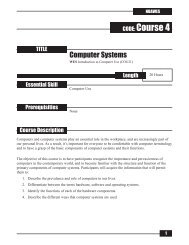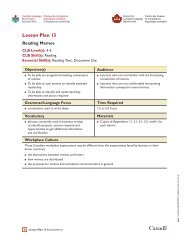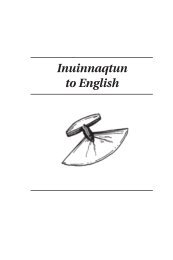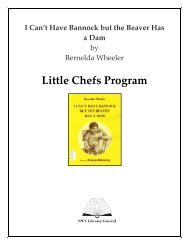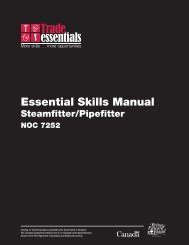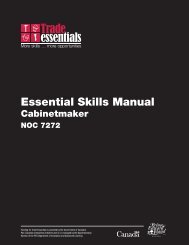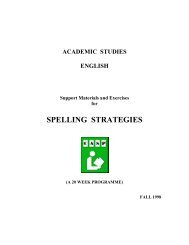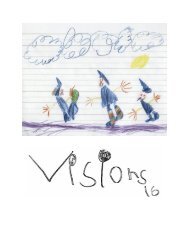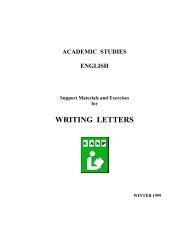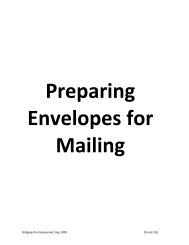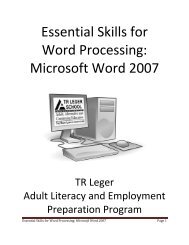Essential Skills Manual - Automotive Service Technician
Essential Skills Manual - Automotive Service Technician
Essential Skills Manual - Automotive Service Technician
Create successful ePaper yourself
Turn your PDF publications into a flip-book with our unique Google optimized e-Paper software.
ESSENTIAL SKILLS<br />
CURRICULUM GUIDEBOOK<br />
Although the term ‘<strong>Essential</strong> <strong>Skills</strong>’ has been around for a number of years, there is<br />
growing recognition of the link between <strong>Essential</strong> <strong>Skills</strong> and success in the trades.<br />
<strong>Essential</strong> <strong>Skills</strong> are used in every occupation and more specifically, in every trade, but<br />
they are used in different ways and at varying degrees of difficulty.<br />
These skills are not technical skills though they may be taught using materials or<br />
examples from a particular trade. Rather, they are the foundational skills that exist in all<br />
occupations. The six <strong>Essential</strong> skills outlined above were used in the creation of materials<br />
for the Trade <strong>Essential</strong>s project.<br />
The Curriculum Frameworks identify the <strong>Essential</strong> <strong>Skills</strong> requirements for thirteen trades<br />
and provide concrete examples of how these skills are utilized in each trade.<br />
The <strong>Essential</strong> Skill requirements are based primarily on HRSDC’s <strong>Essential</strong> <strong>Skills</strong> profiles<br />
www.hrsdc.gc.ca/essentialskills and the National Occupational Analyses.<br />
(http://www.red-seal.ca/tr.1d.2n.4adeta.3l@-eng.jsp?tid=230<br />
They have been reviewed and validated by certified tradespeople and supplemented by<br />
additional research gathered from the Trade <strong>Essential</strong>s project.<br />
3. Instructor Requirements<br />
To be effective, curriculum development and delivery must be guided by the principles of<br />
adult education. Learners in the <strong>Essential</strong> <strong>Skills</strong> programs will have a wide variety of<br />
backgrounds, work experience, education and work-related credentials. Many of these<br />
learners will be employed in full time positions with additional responsibilities outside of<br />
work. It is critical for the instructor to understand the unique requirements of adult<br />
learners and be prepared with challenging, relevant and engaging learning activities.<br />
• Instructors must have knowledge and experience in the area of adult education.<br />
• Instructors should have experience in working in a multi-level classroom<br />
environment.<br />
• Instructors must be familiar with <strong>Essential</strong> <strong>Skills</strong>, how <strong>Essential</strong> <strong>Skills</strong> are used in the<br />
trades, and with the trade itself. Red Seal certification is encouraged.<br />
• Instructors must be able to provide the link between <strong>Essential</strong> <strong>Skills</strong> and the trade<br />
and will provide a trade context from their own experience and expertise. In some<br />
instances a team approach with both an <strong>Essential</strong> <strong>Skills</strong> and a trades instructor may<br />
be preferable.<br />
• It is important that those who presently provide technical training also receive<br />
training to increase their understanding of <strong>Essential</strong> <strong>Skills</strong>.<br />
4. Curriculum Development<br />
The curriculum frameworks are derived from an outcomes-based approach to learning<br />
focusing on the outcome of the intervention or course of study-what the learner will be<br />
able to do or will know at the end of the intervention. They have been developed to<br />
Page 106


